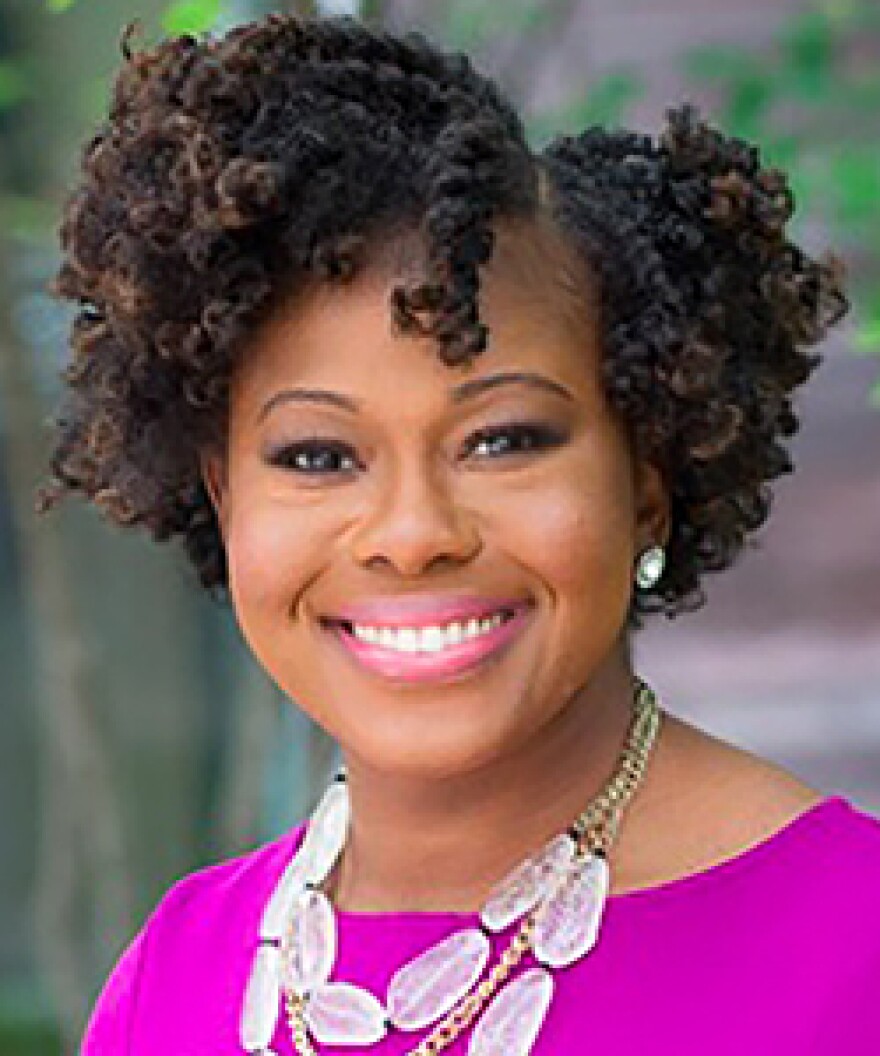Amid national conversations about the role of police, some Democratic lawmakers in the Maryland House of Delegates are pushing to eliminate police from public schools in the state.
The two bills are the latest piece of a years-long fight over whether police should be in schools.
One, called the “Counselors Not Cops Act,” would shift the $10 million a year Maryland spends on school resource officers to pay for counselors, social workers and expanded mental health services.
Del. Jheanelle Wilkins, the Montgomery County Democrat sponsoring that bill, said it’s better to pay for services for students in trouble than a program that criminalizes Black and Brown students and students with disabilities.
“These are proven, evidence-based measures that create safe and supportive schools,” she said at a news conference Tuesday. “It's time that we proactively build these safe schools. And part of this starts with where our state invests its money.”
That bill is scheduled for a hearing in the House Ways and Means Committee Wednesday afternoon.
The other, called the “Police-Free Schools Act,” would eliminate school resource officers statewide and disband Baltimore City’s school police force, which was created by the General Assembly.
That bill has not been formally introduced yet, but Del. Gabriel Acevero, the Montgomery County Democrat who is sponsoring it, said school police, or resource officers, play a role in perpetuating a school-to-jail pipeline for Black, brown and LGBTQ students and students with disabilities.
“What we continue to see are videos online of school resource officers across the country body slamming or arresting or handcuffing children,” he said.
Baltimore school officials did not respond to a request for comment on the bill.
National studies have shown that students in schools with police are more likely to be referred to law enforcement for non-violent behavior than those in schools without police. An analysis by the Education Week Research Center found Black students are more likely to be arrested at school than other students.
“I was one of the children that was ripped from the educational system and thrown into juvenile detention,” McKayla Wilkes, of Schools Not Jails, a Southern Maryland organization, said during Tuesday’s press conference. “For minor offenses, just like so many other youth in the state of Maryland.”
She said spending more on social workers and mental health services would keep kids safe.
“We have to invest in resources to ensure that our kids are getting the social services that they need, the mental health services that they need, so that stories like mine and stories like so many other people within the state of Maryland can cease to exist,” she said.
Jorge Benitez Perez, a 2017 graduate of High Point High School in Prince Georges County and a DACA recipient, said a school resource officer discriminated against him while investigating a minor incident at his school.
“The school officer asked all my friends if they were from Maryland,” he recounted. “He asked me, ‘Are you born in the United States or not?’”
Benitez Perez, who now works for immigrant rights group CASA, said the officer threatened to send him and his parents to court.
“A school is a sanctuary place where I've always felt safe,” he said. “And this officer really had me questioning if I would be separated from my family for something that was so minor.”
While the fight over police in schools has been going on for several years, Wilkins said this year’s bills have “a lot of momentum” and gathered “a lot of interest” because of a broader conversation around police reform. She said they have “a great opportunity for passage” in the House.
The Senate, however, might be a different story. Senate President Bill Ferguson has said these issues should be dealt with locally.



